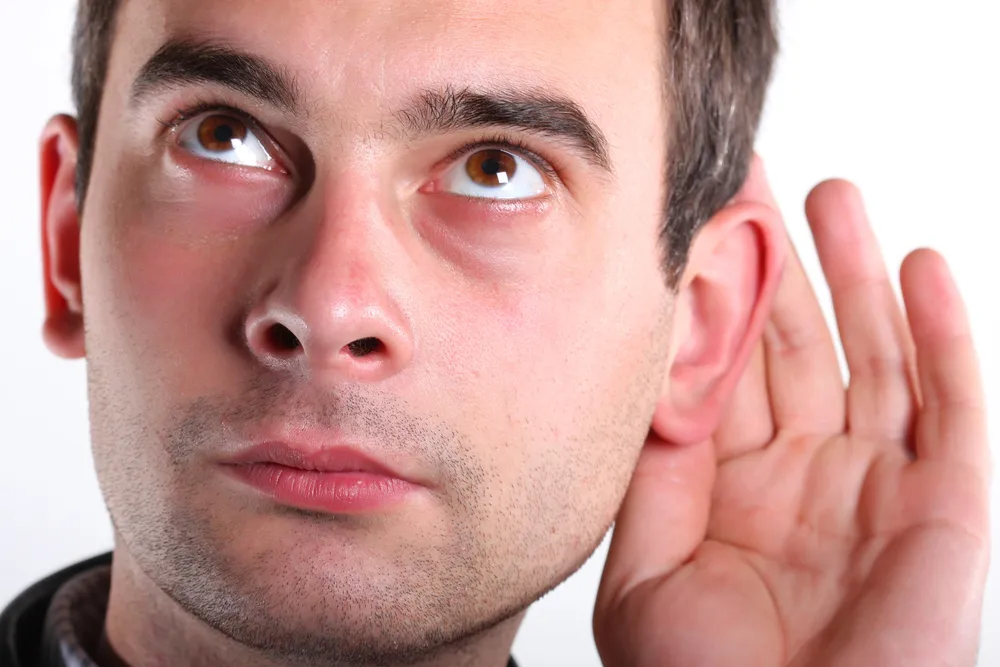Let’s be honest — most of us don’t think twice about our ears until they start ringing, aching, or we’re asking people to repeat themselves a little too often. But hearing loss isn’t just for the “retirement years.” It’s happening to more people — and earlier — than you’d expect. The good news? A huge chunk of it is preventable.
So, how can hearing loss be prevented?
First, the science stuff (don’t worry, we’ll keep it short and sweet). Peer-reviewed research from organizations like the National Center for Biotechnology Information (NCBI) and the CDC tells us that noise-induced hearing loss (NIHL) is one of the most common and preventable types of hearing loss. It occurs when hair cells in the inner ear get damaged by exposure to loud sounds. Once those cells are gone, they don’t regenerate, or at least not now. Medical advancements are keeping this dream alive.
Everyday culprits of hearing damage:
- Concerts & clubs – Decibel levels often hit 100–120 dB (damage can begin after just 15 minutes without protection).
- Lawn mowers & power tools – Usually clock in around 85–110 dB. That leaf blower? A solid 90 dB.
- Headphones at max volume – 100+ dB. If someone else can hear your music, so can your cochlea (and it’s not happy).
- Ambulance sirens – Often over 120 dB up close. Especially risky for first responders and drivers.
- Construction tools (like Hilti guns!) – 130+ dB. Basically, your eardrum’s worst nightmare.
Experts recommend wearing hearing protection (earplugs, earmuffs) for anything over 85 dB — especially if the exposure lasts longer than 8 hours. And yes, that includes mowing the lawn or attending your kid’s school concert where the drumline gets a little too enthusiastic.
But here’s the thing: most people don’t take action until it’s too late.
I know because… I was that person.
In 2014, I was helping my parents rebuild their basement after the High River Flood. Picture an echoey, unfinished concrete space — and me, with a Hilti gun in hand, firing nails into the floor like I was on a mission. What I didn’t realize? That every “pop” was around 130 decibels. I wasn’t wearing any hearing protection. I didn’t think I needed it. I was in my 20’s and indestructible.
My ears rang consistently; and for about a week I assumed it would go away. Spoiler alert: it didn’t.
Years passed. That faint ringing just became part of my normal. It wasn’t until I met my husband (a hearing professional, go figure) that I learned I had noise-induced hearing loss and something called tinnitus.
That eye-opening moment eventually led me to work alongside professionals at the Calgary ear centre, where I saw firsthand how many people were dealing with similar hearing issues — and how many of those cases could’ve been prevented with just a bit of awareness and the right protection.
If I could go back, I’d wear earplugs in a heartbeat. But that moment also lit the spark that brought me into this amazing profession — where we don’t just test ears, we help people protect their hearing and open the world of hearing… again. And now? I get to help others prevent the same mistake I made.
So protect your ears. They’re the only pair you’ve got.
(And trust me — ringing in your ears is not a cool party trick.)
Hearing loss can result from prolonged exposure to loud noises, aging, ear infections, certain medications, and genetic factors.
Use earplugs or noise-canceling earmuffs when exposed to loud sounds, such as at concerts or construction sites. Limiting the duration of exposure to loud noise also helps.
Yes, maintaining a healthy lifestyle, avoiding inserting objects into the ears, and keeping the volume low on personal audio devices can contribute to hearing health.
It’s recommended to have your hearing evaluated every few years, or more frequently if you’re exposed to loud noises regularly or notice any hearing difficulties.
A balanced diet and regular exercise can improve blood circulation, including to the ears, which may help maintain hearing health.
Some types of hearing loss, such as those caused by earwax buildup or infections, can be treated. However, sensorineural hearing loss is typically permanent, making prevention crucial.

9 comments
https://photozou.jp/user/top/3412738
Your writing has a way of resonating with me on a deep level. It’s clear that you put a lot of thought and effort into each piece, and it certainly doesn’t go unnoticed.
https://qualtricsxmfmz5pbb2s.qualtrics.com/jfe/form/SV_cM7JwaE0gAbnIyy
виртуальный номер дании https://continent-telecom.com/virtual-number-denmark
croatia virtual number
аренда яхты в европе
sailboat charter caribbean islands
https://www.bark.com/en/gb/company/budvacar/J31KwR/
segelboot chartern https://eurosegeln.com